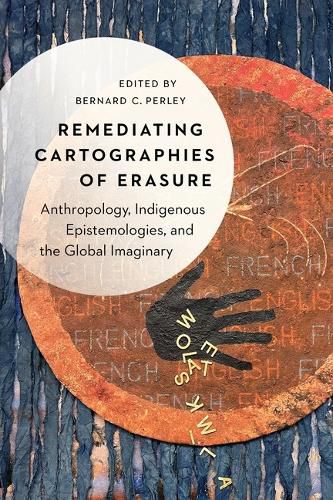Readings Newsletter
Become a Readings Member to make your shopping experience even easier.
Sign in or sign up for free!
You’re not far away from qualifying for FREE standard shipping within Australia
You’ve qualified for FREE standard shipping within Australia
The cart is loading…






Remediating Cartographies of Erasure brings together leading sociocultural and linguistic anthropologists to explore the moral imperatives of anthropology as a discipline to contribute to the self-determination and equality of Indigenous peoples around the globe. This engaged collaboration highlights the partnerships between Indigenous communities and anthropology as a mutually respectful and emancipatory practice of Indigenous and anthropological epistemologies.
Indigenous scholars from New Zealand, the United States, and Canada and non-Indigenous scholars from Australia, the United States, and Canada each provide concrete examples of how researchers actualize the moral imperative to work with Indigenous peoples in ways that foster their human rights and self-determination. The contributors discuss anthropological work done in Canada, United States, Brazil, Peru, Bolivia, Honduras, Australia, Sardinia, and New Zealand.
In laying out a world anthropology, this volume demonstrates the rectification practices of Indigenous peoples and continues anthropology's long-standing advocacy for social justice and human rights around the globe.
$9.00 standard shipping within Australia
FREE standard shipping within Australia for orders over $100.00
Express & International shipping calculated at checkout
Remediating Cartographies of Erasure brings together leading sociocultural and linguistic anthropologists to explore the moral imperatives of anthropology as a discipline to contribute to the self-determination and equality of Indigenous peoples around the globe. This engaged collaboration highlights the partnerships between Indigenous communities and anthropology as a mutually respectful and emancipatory practice of Indigenous and anthropological epistemologies.
Indigenous scholars from New Zealand, the United States, and Canada and non-Indigenous scholars from Australia, the United States, and Canada each provide concrete examples of how researchers actualize the moral imperative to work with Indigenous peoples in ways that foster their human rights and self-determination. The contributors discuss anthropological work done in Canada, United States, Brazil, Peru, Bolivia, Honduras, Australia, Sardinia, and New Zealand.
In laying out a world anthropology, this volume demonstrates the rectification practices of Indigenous peoples and continues anthropology's long-standing advocacy for social justice and human rights around the globe.